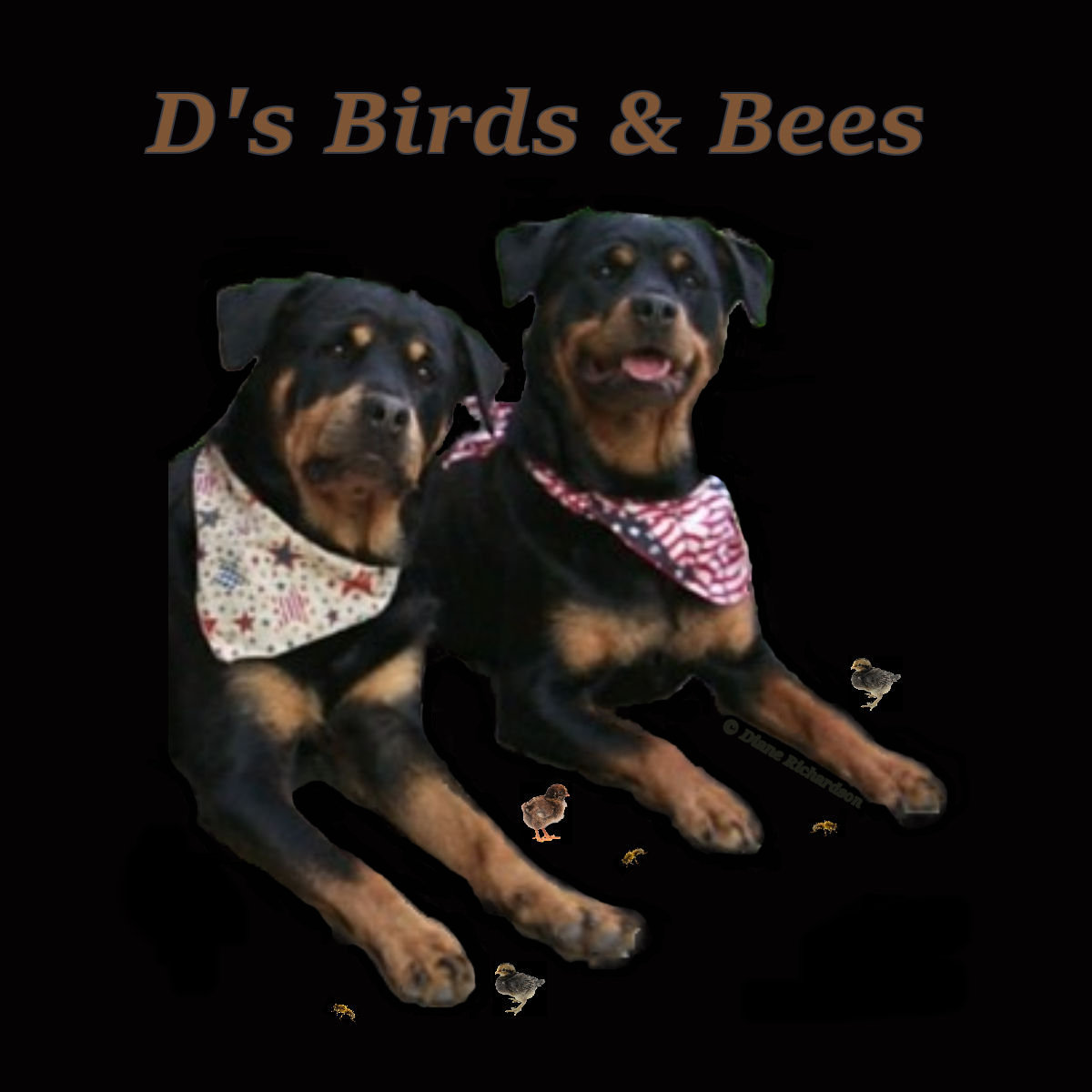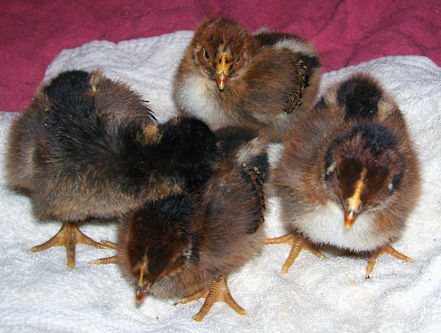
CHICK AND EGG PRICES

NH NPIP #12-246
PT/AI tested
Our birds are NH state tested for Pullorum Typhoid and Avian Influenza
Our premises and birds are NH state inspected as well for cleanliness, good husbandry practices, egg handling, parasites, etc..
Passing these inspections and blood tests enable us to be NPIP certified
For Eating Egg Storage guidelines click here
For breed descriptions and information on our birds click here

These Birds will be raised with optimal nutrition and absolute minimal medications and pesticides in their lives.
Barnevelder
Barnevelders are a dual purpose medium to large chicken that lays brown eggs.
Our original breeding stock of Barnevelders come from Fossil Rock Farm in NY and are full Johan Acterberg (Hidden Meadow Farm) except one hen is 1/4 Dutch Connection
Hatching Eggs :
$5.00 each + priority shipping (or 70/dozen shipping/packaging/insurance included)
Optional "super packing" using pool noodles for rough routes (St Paul, Oklahoma City, Fayetteville and similar) $5 extra
express shipping available for extra fee
Chicks:
$10.00 ea straight run
Legbar (Crested Cream and Crested Golden Crele)
Legbars of the crested type are a medium sized crested chicken that lay blue and green eggs.
This is an auto sexing breed, which means chicks are visually sexable at hatch.
Our original breeding stock of Leg Bars come from Ferri Fresh Eggs in NH ,Whisperun Farm in Texas and Stiffler Group farm in Florida. GFF A, B, C lines
Hatching Eggs :
$5.00 each + priority shipping and packaging (or 75/dozen shipping/packaging/insurance included)
express shipping available for extra fee
Chicks:
$15.00 Pullet, $5.00 Cockerel
Barnware
Generation 1 is Barnevelder Rooster over a Delaware hen.
Generation 2 is either Barnevelder Rooster over Barnware hen OR Delaware Rooster over Barnware hen
Generation 1 Pullets are red or reddish gold with or without chipmunk stripes, Cockerels are yellow, yellowish or whiteish with or without a grey overlay
This is a one generation color difference and does not breed true in future generations so Generation 2 onwards will not be sexable at hatch
These chicks will make good egg layers , laying a brown egg
Cockerels grow fast and heavy, NOT like a CornishX but a good farm table bird
These birds are generally people friendly and the chicks are super people oriented
Hatching Eggs :
$1.25 each + priority shipping (or 25/dozen shipping/packaging/insurance included)
Optional "super packing" using pool noodles for rough routes (St Paul, Oklahoma City, Fayetteville and similar) $5 extra
express shipping available for extra fee
Chicks:
$2.50 ea mixed sexes only
The Frontier Project Chicken (tm)
generation 1 pricesHatching Eggs :
$1.25 each + priority shipping (or 25/dozen shipping/packaging/insurance included)
Optional "super packing" using pool noodles for rough routes (St Paul, Oklahoma City, Fayetteville and similar) $5 extra
express shipping available for extra fee
Chicks:
$2.50 ea mixed sexes only
Delaware
Delaware are heritage breed meat birds (also suitable for backyard egg production)
Our original breeding stock of Delawares comes from Chickcharney Farm in NC.
(we will not be selling meat or offering processing services)
Hatching Eggs :
None currently available:
$2.50 each + priority shipping (or $40/dozen shipping/packaging included)
Optional "super packing" using pool noodles for rough routes (St Paul, Oklahoma City, Fayetteville and similar) $5 extra
express shipping available for extra fee
Chicks:
None currently available
$10.00 ea straight run
Contact us for more information:
Diane & Rob Richardson
P.O. Box 160, Georges Mills, NH 03751
dsbirdsandbees@gmail.com
Breed Info Below,/a>
Delaware:Our Delawares originate from Chickcharney Farm in NC.
Chickcharney Delawares are not a re creation of the breed, their birds are a combination of several different original bloodlines.
Delawares were created in the 1940's by George Ellis from Ocean View, Deleware. He bred Barred Plymouth Rock Roosters to New Hampshire females and kept the barred Columbian patterned white birds for future breedings and he produced a relatively fast growing bird for the broiler market. The Delaware breed was knocked out of the market in the 1950's by the Cornish cross birds which are the industry standard today.
For full history click here
Delaware's lay around 4-5 brown or pinkish eggs a week
Barnevelder:
Our Barnevelders are primarily Johan lines
Johan van Achterberg of Hidden Meadow Farm in Connecticut, brought some pure Barnevelder eggs to the USA after a visit to his Netherlands homeland. He maintained this line until his death. Fossil Rock farm in NY then maintained the lines for awhile. Our birds come from Fossil Rock and we have some pure Johan birds and some 3/4 Johan birds.
The Barnevelder breed was developed around 1850 in the Dutch town of Barneveld. They are a large fowl dual purpose breed with a docile personality, compact build and broad breast. The breed comes in Black double laced (original), Blue double laced and Splash, all with a single comb and yellow legs. They are poor flyers. We only have Black double laced birds.
Our girls lay 3-5 dark brown eggs a week
Cream Legbar:
Our Cream Legbars are all properly crested birds and descend from the GreenFire Farms A,B,C lines. We don't keep flighty, nervous or aggressive Legbars. We want a friendly or tolerant bird. Cream Legbars are a crested medium sized large fowl with a straight comb and yellow legs, and they can fly very well
Cream Legbars are an Autosexing breed that can be sexed at hatch and this trait breeds true. We do not keep ambigous appearing chicks for breeding as that is a sure way to lose the autosexing traits.
Cream Legbars were created in England by breeding a blue egg laying hen from Chile with other breeds and refined them to be an autosexing blue egg laying bird.
For complete history click here
As a breed the hens can lay eggs ranging from mint green to baby blue.
Our girls lay 4-7 eggs a week
Storing Eggs for Eating
Storing fertile and infertile eggs for later eating.YES, you can keep fresh homegrown eggs in an unrefrigerated state as long as you don't wash them and they are safe
BUT
If your place of storage (counter,cupboard etc) is over 60 degrees keep these comments in mind
At storage temperatures of 60 - 70 degrees shelf life of fresh eggs is shortened eggs need to be consumed in less than 14 days even if unwashed
If storage area is over 70 degrees the fresh eggs need to be consumed in less than a week
IF the fresh eggs are fertile (hens live with a rooster) and storage area is 75-80 you need to consume them in less than 5 days
At storage temps of 75-80 degrees fertile eggs can start to develop they may not but they can
At storage Temps over 90 degrees and fertile eggs WILL start to develop! Unless you will eat the fertile eggs in two days don't leave them unrefrigerated at this temperature!
I date all my eggs with a pencil and have a thermometer in the storage cabinet ALL images and content
(C) Diane Richardson 2017